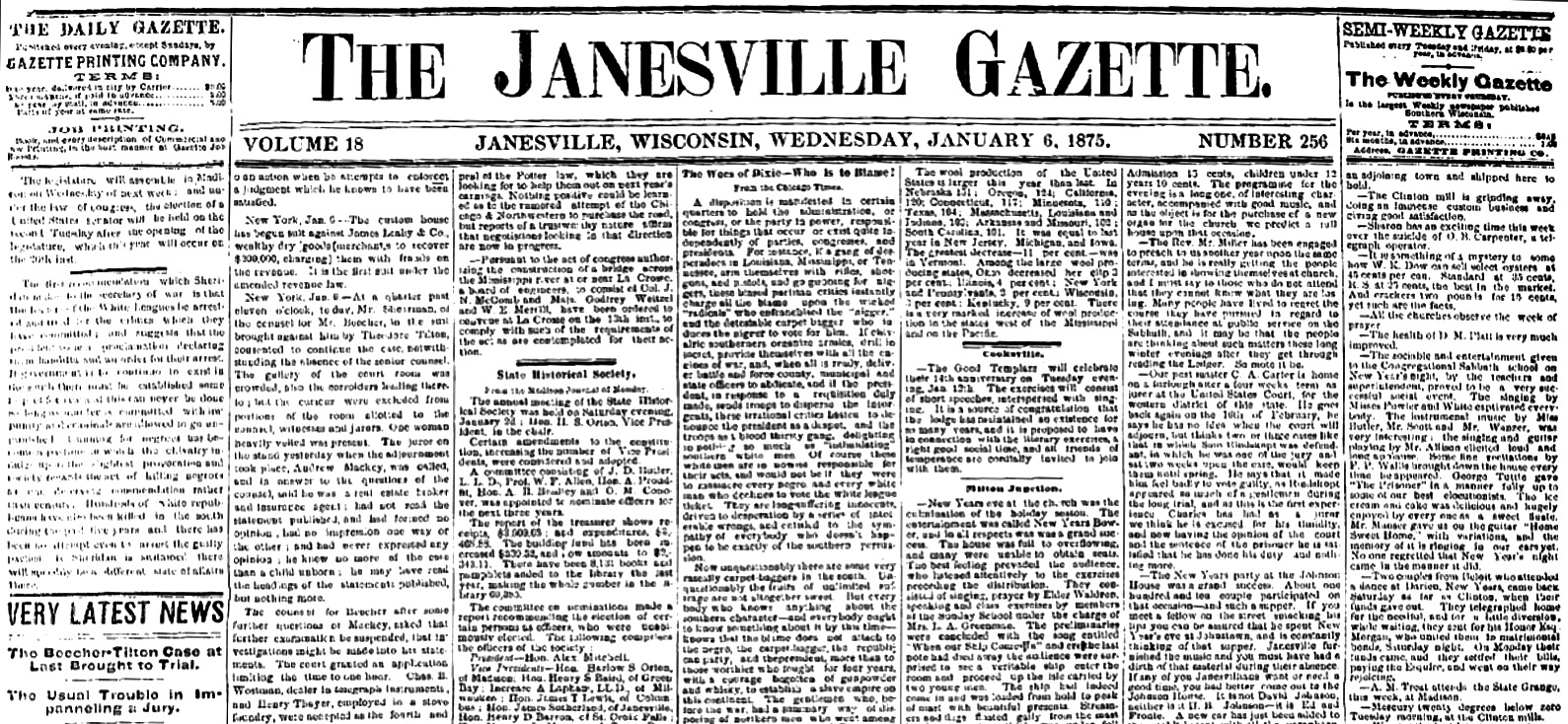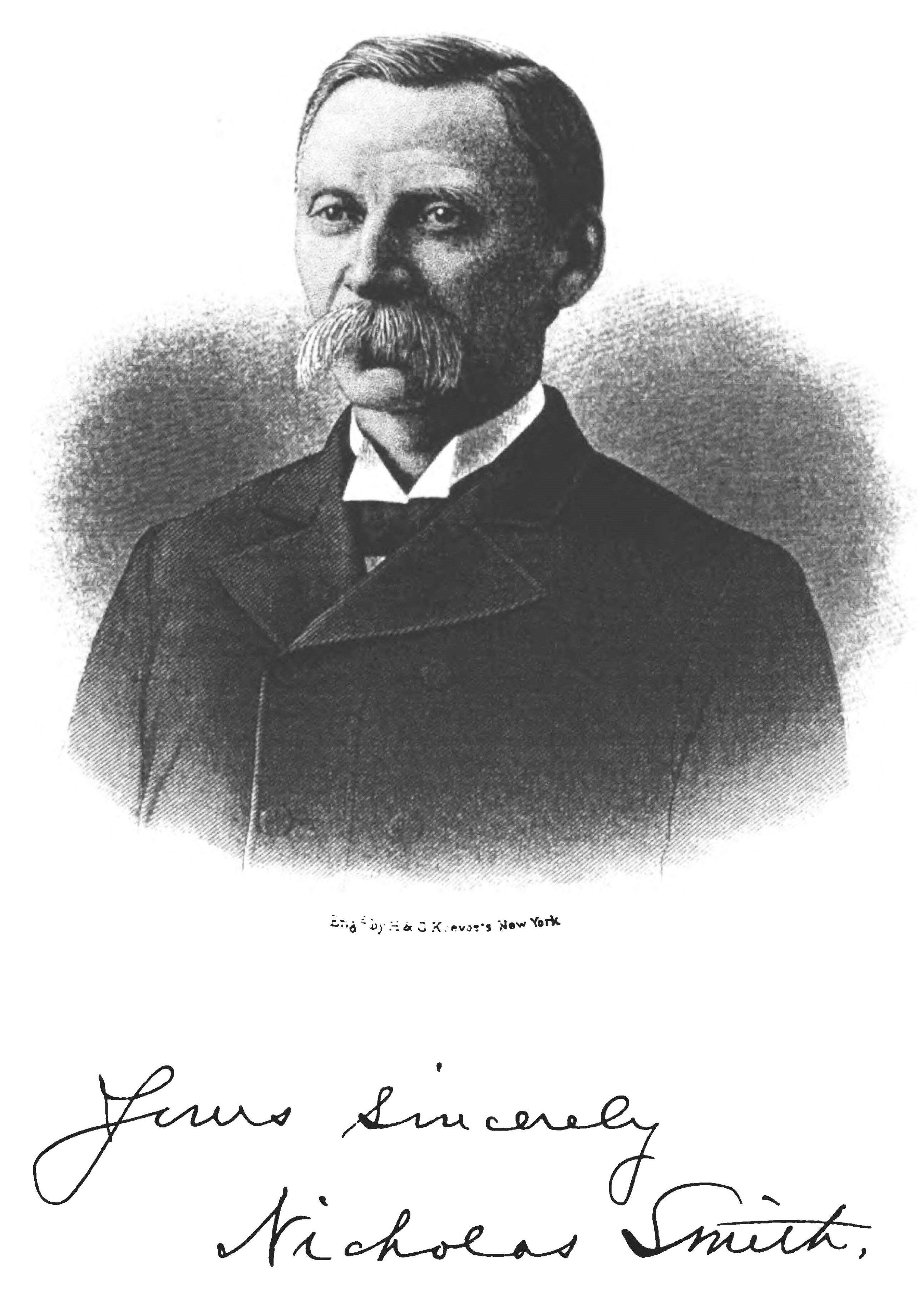“The Gazette has a new notice of me, and I fear I am getting puffed up.”
–Lavinia Goodell, August 6, 1874
A huge thank you to Anna Marie Lux for writing and the Janesville Gazette for publishing an in-depth account of Lavinia’s digital biography and the research behind it. Lavinia would no doubt be very pleased to know that nearly 140 years after her death her hometown newspaper still finds her newsworthy. Read the article here.
Lavinia had a long and cordial relationship with the Gazette. She frequently submitted articles and notices about temperance events and literary society meetings. She wrote letters to the editor on the issues of the day, including suffrage. Her diary entries show that she stopped by the Gazette office on a regular basis. The day after she was admitted to practice before the Rock County circuit court, Lavinia noted that she “called at Gazette office to get cards printed.” (1) After opening her law office, Lavinia ran a daily notice in the Gazette’s “Professional Cards” section. Her first ads announced, “Miss Lavinia Goodell, Attorney-at-Law. Office 21 West Milwaukee Street, opposite First National Bank, Janesville.” (2) After obtaining her notary commission, she proudly added “and notary public” to her Attorney-at-Law title. (2)

At times Lavinia used the Gazette as a research source. On April 28, 1876, she reported, “Was in Gazette office looking things up in encyclopedia.” (1) On numerous occasions she reported speaking with the Gazette’s editors, General James Bintliff and Nicholas Smith. It appears that both men supported her legal career. In early 1877, Lavinia noted, “Gen. Bintliff wrote Sec. [of State] Ludington to give me Commission as Notary.” Ten days later she noted, “Wrote piece for Gazette on Library and had long talk with Gen Bintliff on it and on corporations.” (2)
As the paper’s city editor, Nicholas Smith was likely the source of many of the articles written about Lavinia, most of them very complimentary. Smith was an English immigrant who arrived in western Wisconsin in the late 1840s and was put to work in the lead mines. As a young man he taught school and then studied law, being admitted to the bar in 1862, shortly before enlisting in the 33rd Wisconsin Infantry. After the Civil War ended, Smith decided he was not cut out to be a lawyer and got into the newspaper business. Smith began his career at the Gazette in the fall of 1874, shortly after Lavinia commenced her law practice. (3)

The Gazette’s support for women’s rights is evident in articles such as the one that ran on July 12, 1875 reporting on Rev. Jenk Jones’s sermon on the place of woman in church and state. The Gazette said, “The wrongs inflicted upon women are like the well known line in an auction bill, ‘too numerous to mention.'” (2) When Lavinia filed her first application for admission to practice before the Wisconsin Supreme Court, the Gazette predicted:
We are under the impression that the court will not refuse to grant her the right to appear before it. She is already a member of the Rock County bar, and to preclude her from following a case on an appeal from this Circuit to the Supreme Court, would not be right. (2).
When Lavinia was denied admission to the Supreme Court bar, the Gazette published a series of articles denouncing the decision. It predicted that it was only a matter of time before the Supreme Court would be forced to admit Lavinia, and it lauded her victory when she was.
Thank you, again, to the Janesville Gazette for sharing Lavinia’s true identity with her Wisconsin hometown. NK
Sources consulted: (1) Lavinia Goodell’s diary (June 18, 1874; April 28, 1876; February 24, 1877; March 11, 1879); (2) Janesville Daily Gazette (July 6, 1874; March 2, 1875; March 12, 1877; July 12, 1875; December 16, 1875; February 17, 1876) (3) The History of Rock County, Wisconsin (Chicago: Western Historical Company, 1879)
Photo credit: Rock County Historical Society.







